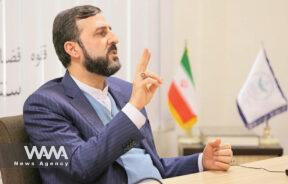Jalili vs. Pezeshkian: Respectful Clash, Heated Debate
WANA (July 02) – The recent debate between Saeed Jalili and Masoud Pezeshkian on June 21, 2024, stood out as one of the most unique electoral debates in recent years. Due to fewer participants, the atmosphere was more intimate and dynamic, transforming the debate into a genuine and meaningful discussion.
Differences from Previous Debates
One prominent feature of this debate was the smaller number of participants, which allowed for deeper discussions.
Unlike previous debates that were often shallow and broad due to the many participants, this debate evolved into a substantial and engaging conversation. It sometimes became a back-and-forth exchange between the two sides, leading to clear and direct opinions.
The program’s producers decided not to intervene or cut the speakers off, enhancing the appeal of their responses.
Another notable aspect was the active role of the moderator, who interjected with questions during the candidates’ talks to draw out specific examples and prevent generalities, resulting in more transparent and more understandable points.
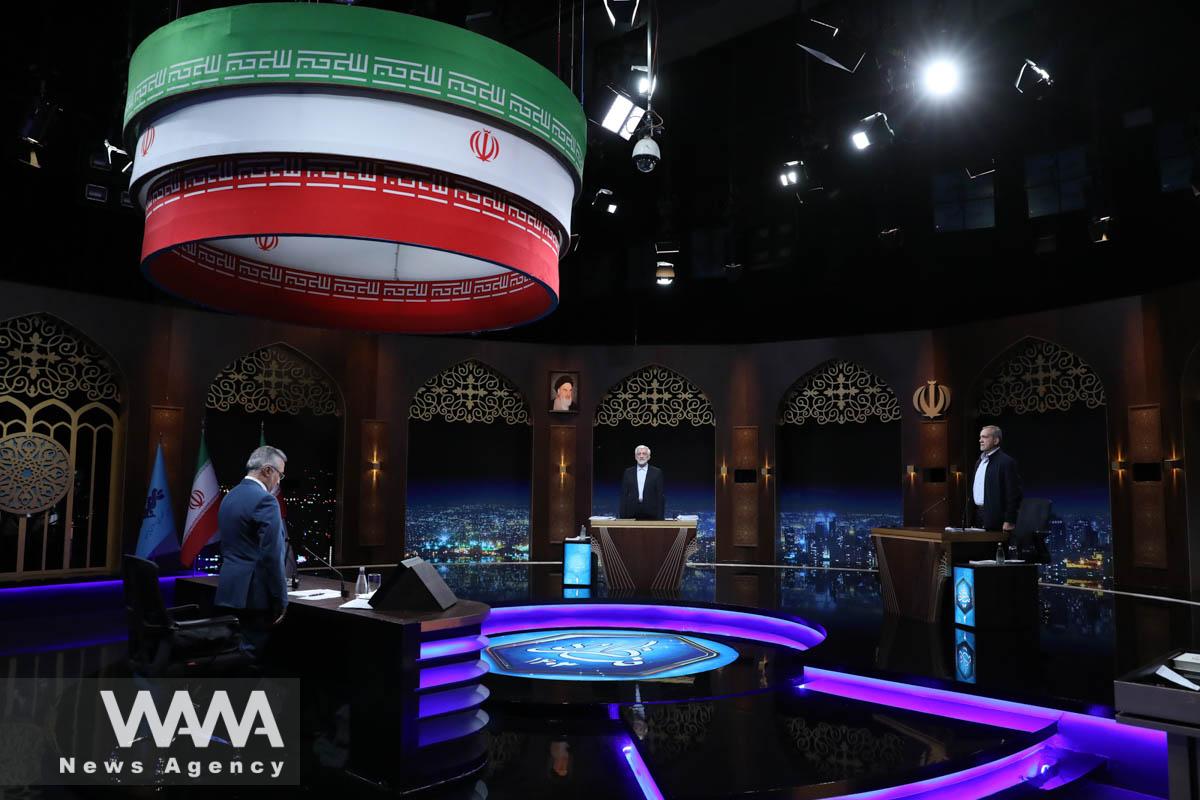
Presidential candidates Masoud Pezeshkian and Saeed Jalili attend an election debate at a television studio in Tehran, Iran July 1, 2024. Morteza Fakhri Nezhad/IRIB/WANA (West Asia News Agency)
Respect Amidst Challenges
Despite significant differences and sharp critiques, both candidates maintained high respect. This mutual respect led to a richer and more captivating debate.
Both candidates strongly criticized their supporters’ tactic of undermining the opponent, emphasizing that destructive behavior is inappropriate. This demonstrated their adherence to ethical principles and desire for a constructive debate.
At one point, when Pezeshkian began quoting a hadith from Imam Ali and forgot the ending, Jalili calmly and kindly reminded him of the rest of the sentence. After the debate, both candidates embraced, showcasing their ethical conduct.
Pezeshkian’s Use of Expert Opinions
Masoud Pezeshkian entered the debate with more prepared programs and explanations than in previous instances. Yet, he seemed to rely on expert opinions rather than deeply engaging with the topics himself.
This lack of deep knowledge in more challenging discussions was apparent, as he often repeated himself and failed to provide detailed analyses.
This weakness was noticeable during the debate, indicating he was not fully prepared to tackle more profound questions. His strategy often involved reiterating common issues and public dissatisfaction when he struggled to answer, which appeared as an attempt to evade challenging questions.
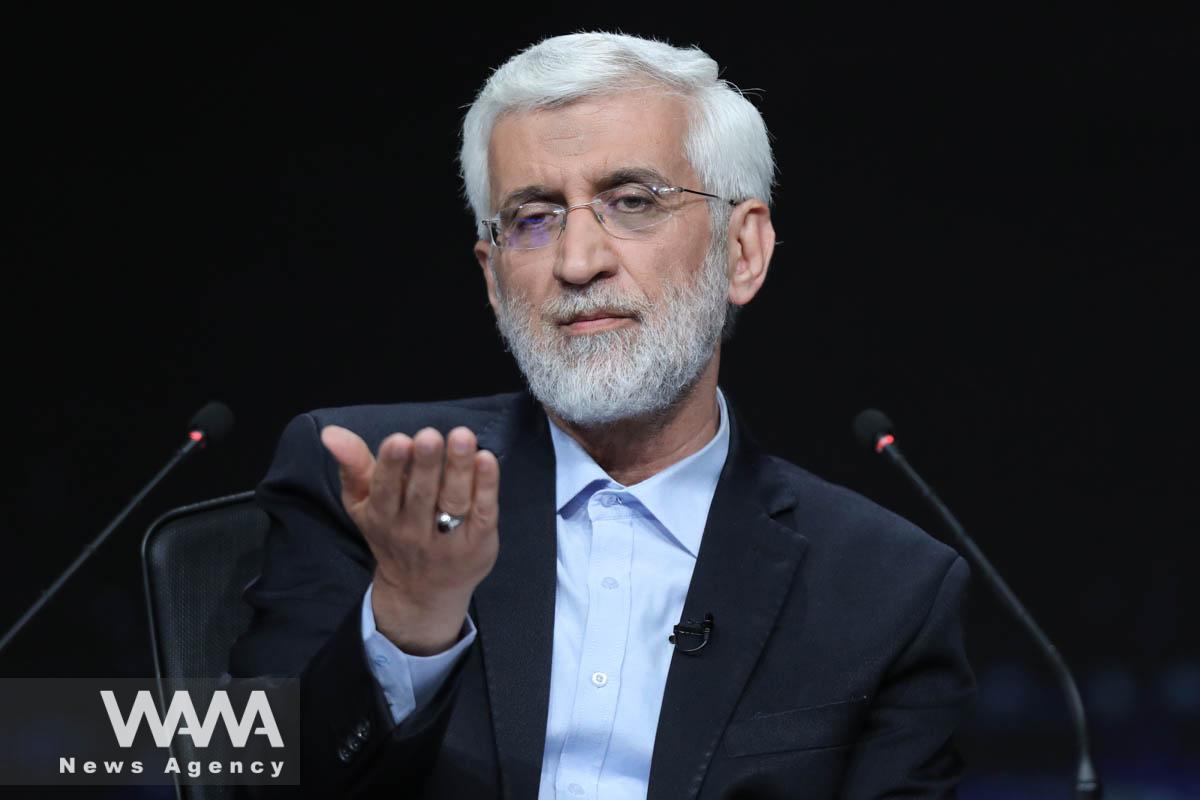
Iranian presidential candidate Saeed Jalili attends an election debate at a television studio in Tehran, Iran July 1, 2024. Morteza Fakhri Nezhad/IRIB/WANA (West Asia News Agency)
Jalili’s Emphasis on Pre-Election Planning
Saeed Jalili stressed the importance of having a clear plan before being president, arguing that presidential programs should not be formulated post-election.
This stance was particularly highlighted compared to Pezeshkian’s approach, which relied heavily on experts’ opinions, showcasing Pezeshkian’s weakness. Jalili’s strength lay in his well-researched plans and detailed information.
Criticisms of Domestic and Foreign Policies
In foreign policy, Jalili was highly critical of international interactions and economic dependencies, advocating for financial independence. Conversely, Pezeshkian emphasized resolving sanctions and attracting foreign investments.
Both candidates acknowledged the importance of attention to minorities and ethnic groups in cultural policy, though Pezeshkian emphasized this, attempting to attract these demographics.
Personality Differences and Communication Styles
Jalili, with a personality suited for intellectuals and a compassionate approach towards people, aimed to persuade his opponent.
Meanwhile, Pezeshkian used language that was more accessible to the general public and referenced everyday issues, capturing the attention of a broader audience. This distinction in communication styles was a significant highlight of the debate.
If Jalili continues with his current approach in the remaining debate opportunities without better connecting with the general public and using more straightforward language, he may find it challenging to secure victory.
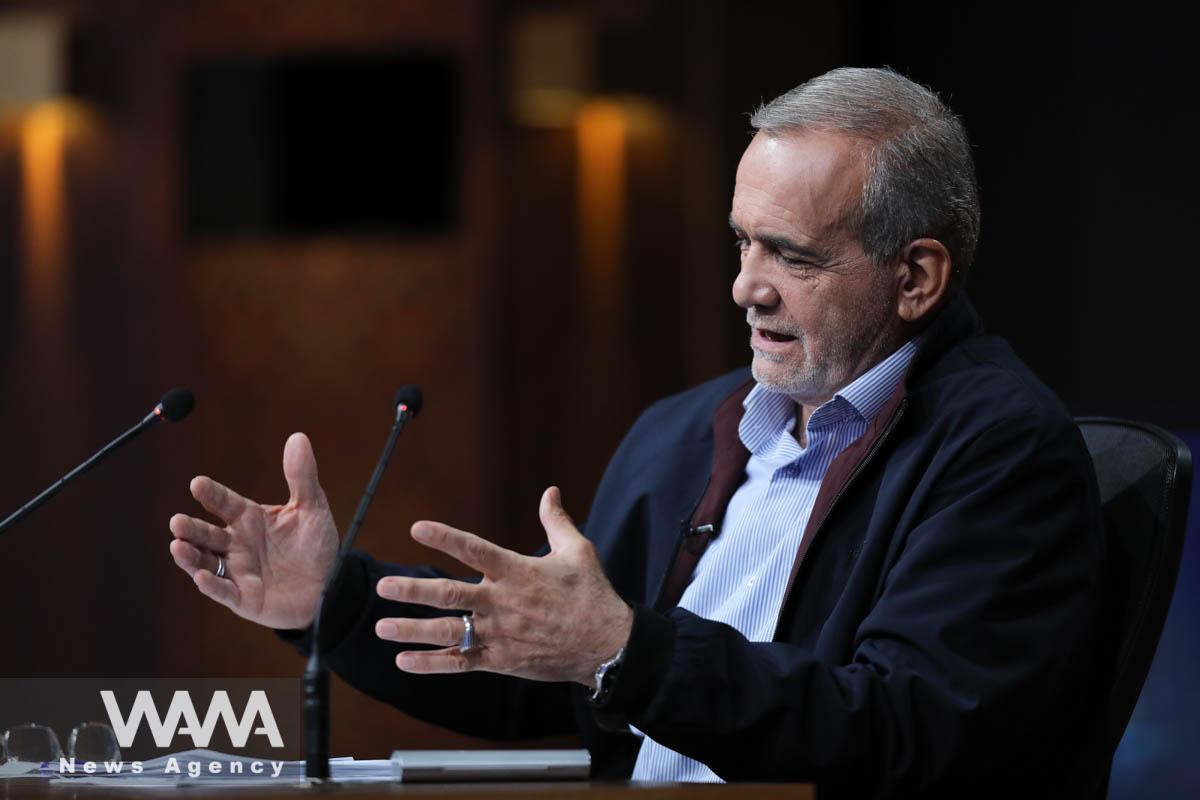
Iranian presidential candidate Masoud Pezeshkian attends an election debate at a television studio in Tehran, Iran July 1, 2024. Morteza Fakhri Nezhad/IRIB/WANA (West Asia News Agency)
Jalili’s Response to Internet Filtering Criticisms
One of the debate’s intriguing moments was Jalili’s response to Pezeshkian’s criticism regarding internet filtering. Jalili opposed the current filtering method and proposed a plan to allocate a percentage of revenue to virtual content creators.
This plan demonstrated Jalili’s effort to offer practical and tangible solutions, successfully drawing the audience’s attention and showcasing his specific programs for everyday issues.
Who Won the Debate?
The debate revealed that both candidates, with their different approaches and sharp critiques, strive to present themselves as suitable presidential options. Their personality differences and communication methods played a significant role in attracting different audiences.
On one hand, Jalili’s scientific and elite-oriented approach and on the other,Pezeshkian’s populist and relatable style aimed to present themselves in the best light.
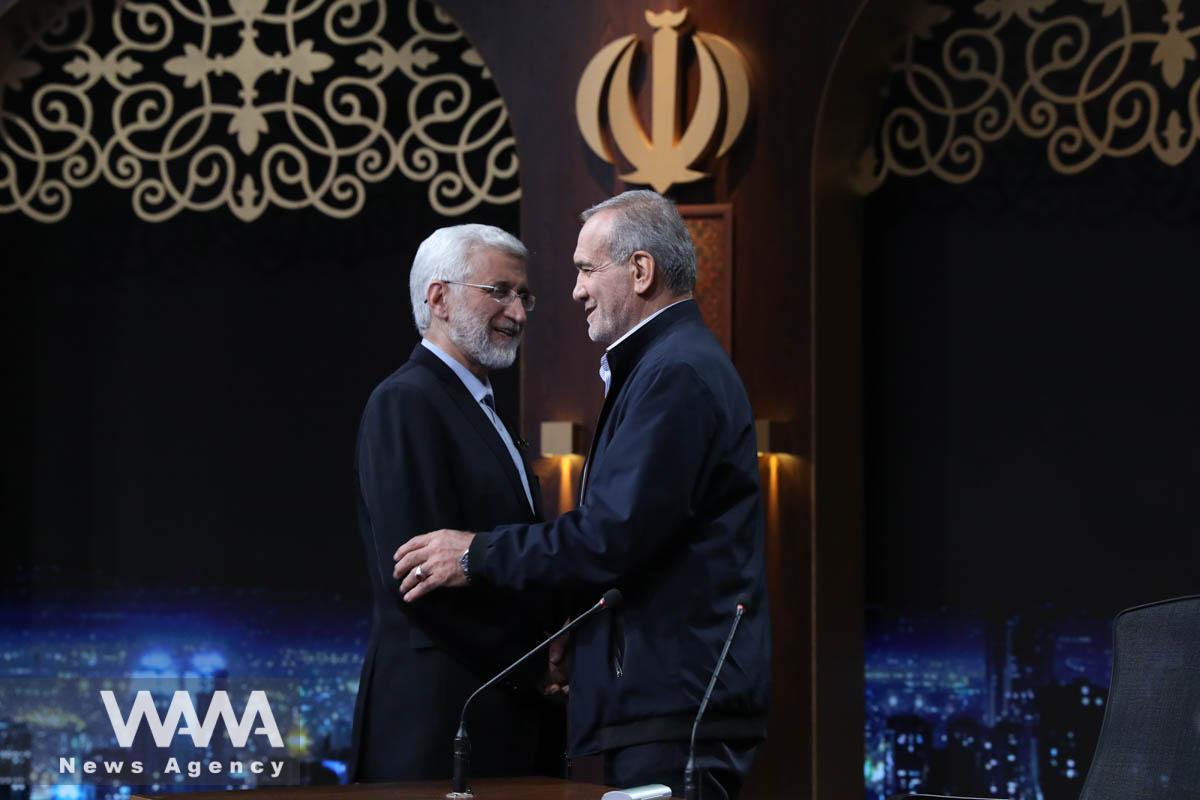
Presidential candidates Masoud Pezeshkian and Saeed Jalili attend an election debate at a television studio in Tehran, Iran July 1, 2024. Morteza Fakhri Nezhad/IRIB/WANA (West Asia News Agency)
While Jalili was undoubtedly more vital in presenting his ideas and showcasing his eloquence, Pezeshkian, despite his lack of preparedness and presentation skills, was more successful in appealing to the general public with his accessible and engaging discourse.
Therefore, if debates aim to attract votes, Pezeshkian might emerge as the winner by resonating more with ordinary people.
By WANA writer: R. Hejazi
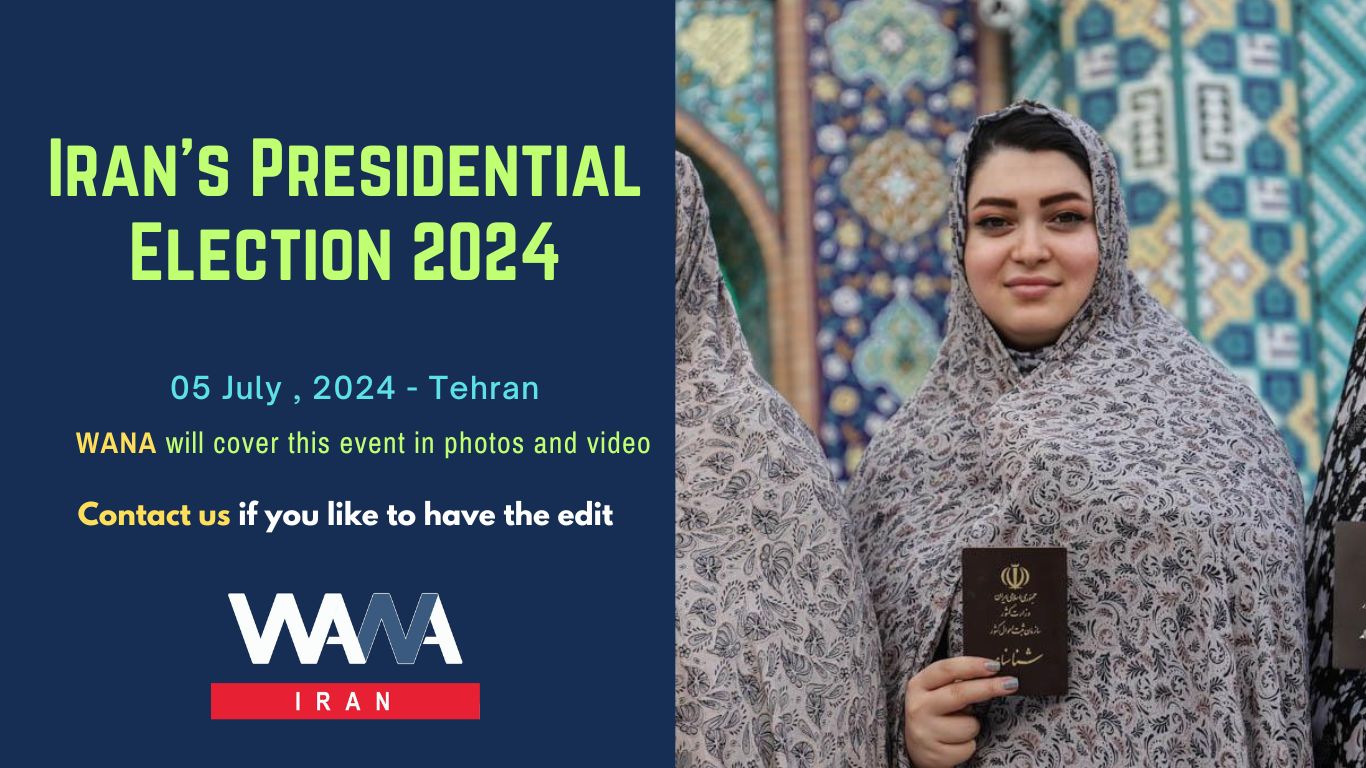
WANA – Presidential Election 05 July 2024







